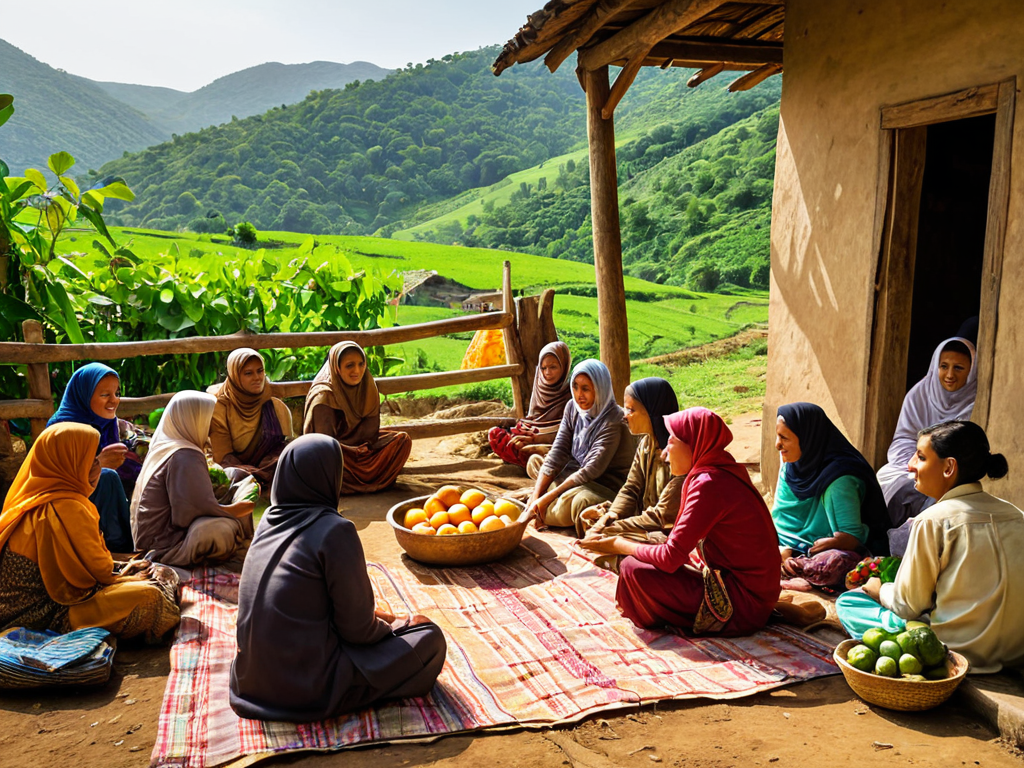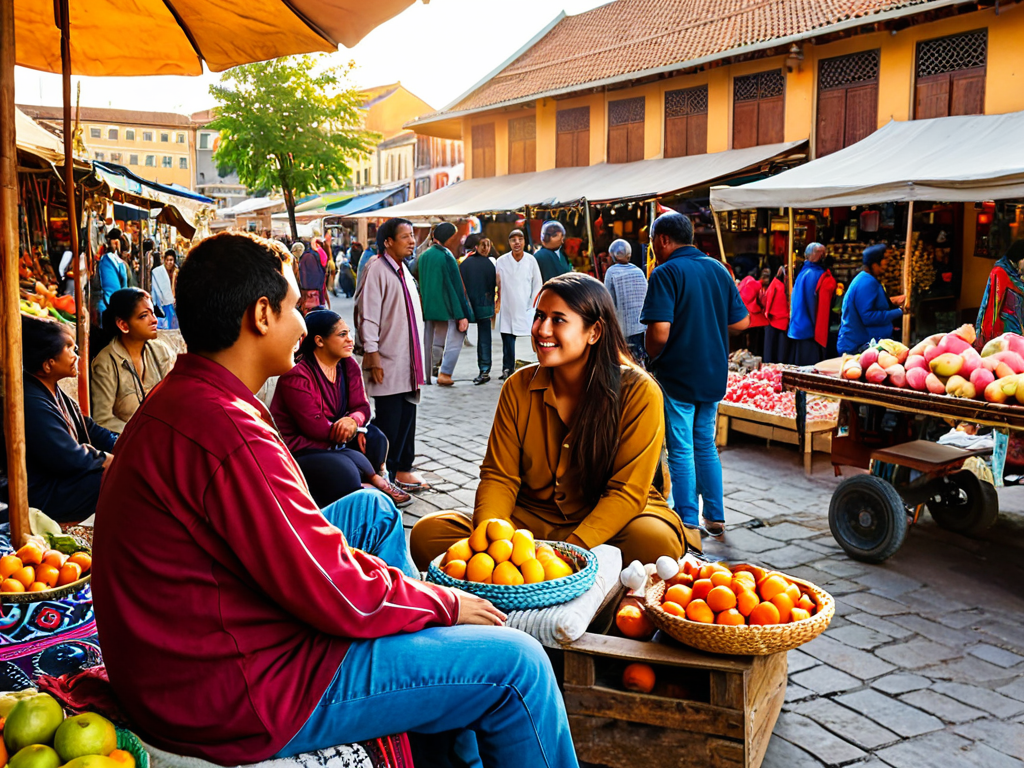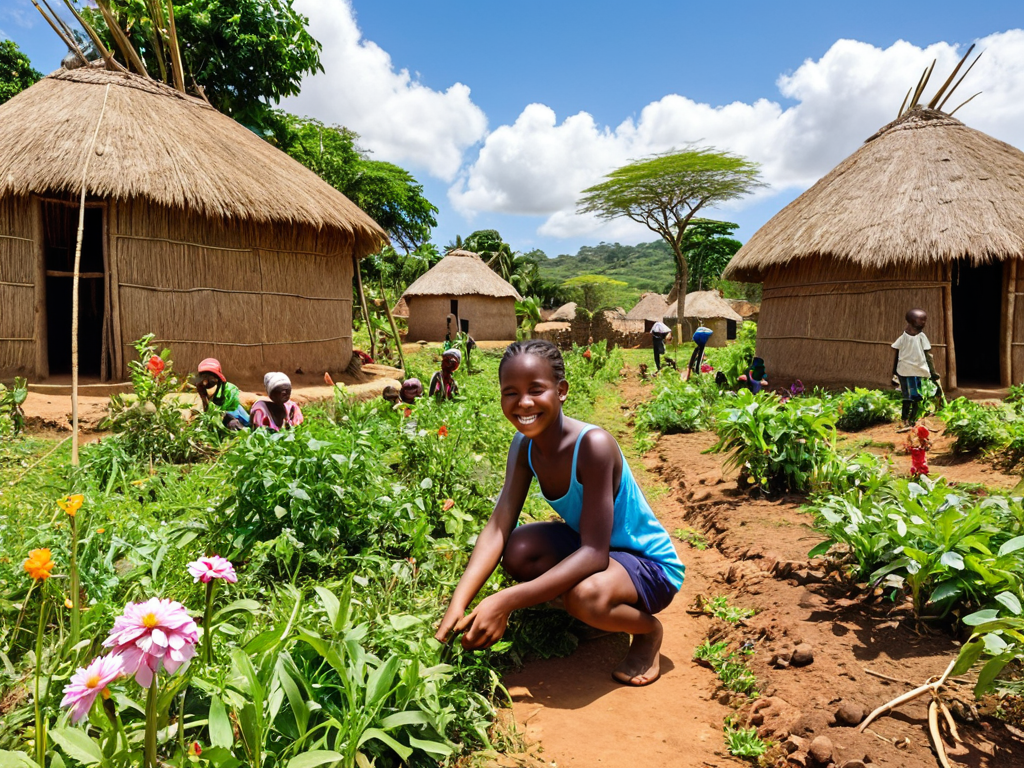I still remember the day I decided to volunteer abroad, full of excitement and idealism, only to realize that a guide to volunteering abroad ethically and responsibly was not as straightforward as I thought. The truth is, many of us have been misled to believe that volunteering abroad is always a positive experience, but the reality is that it can sometimes do more harm than good if not done properly. I learned this the hard way, and it’s a lesson that has stuck with me ever since.
As someone who has been in your shoes, I want to share with you the honest truth about volunteering abroad, and provide you with practical advice on how to do it in a way that truly benefits the communities you’re visiting. In this article, I’ll cut through the noise and give you a step-by-step guide on how to navigate the complex world of international volunteering, from researching organizations to preparing for your trip, and everything in between. By the end of this guide, you’ll be equipped with the knowledge and tools you need to make a positive impact, and have a life-changing experience that you’ll always treasure.
Table of Contents
- Guide Overview: What You’ll Need
- Step-by-Step Instructions
- Volunteering Abroad Guide
- Navigating the Complexities of Global Service: 5 Essential Tips
- Key Takeaways for Ethical Volunteering Abroad
- Embracing Responsible Travel
- Embracing the Journey of Responsible Volunteering
- Frequently Asked Questions
Guide Overview: What You’ll Need

Total Time: several weeks to several months
Estimated Cost: $500 – $5,000
Difficulty Level: Intermediate / Hard
Tools Required
- Research Skills (to find reputable organizations)
- Language Skills (to communicate with host communities)
- Cultural Competence (to understand local customs and norms)
Supplies & Materials
- Passport (with at least 6 months validity)
- Visa (if required by the host country)
- Vaccinations (as recommended by a healthcare professional)
- Travel Insurance (that covers volunteering activities)
- Fundraising Materials (to support your volunteering efforts)
Step-by-Step Instructions
- 1. First, research thoroughly the organization you’re planning to volunteer with, looking into their mission, values, and past projects to ensure they align with your own goals and principles, and that they have a track record of sustainable practices.
- 2. Next, consider the local context of the place you’re volunteering in, including the cultural norms, economic conditions, and environmental issues, to understand how your actions can have a positive impact and avoid unintended consequences, such as disrupting local economies or disrespecting cultural traditions.
- 3. Then, evaluate your motivations for volunteering abroad, asking yourself if you’re doing it for personal growth, to make a difference, or for a mix of both, and being honest with yourself about what you hope to achieve, so you can find an organization and role that matches your skill set and interests.
- 4. After that, look into the logistical aspects of your volunteer experience, including transportation, accommodation, and safety precautions, to ensure that you’re well-prepared for the challenges of living and working in a foreign environment, and that you have a support system in place in case of emergencies.
- 5. Once you’ve selected an organization and program, review the terms of your volunteer agreement carefully, paying attention to details such as the duration of your stay, your roles and responsibilities, and any expectations around cultural sensitivity or community engagement.
- 6. Before departing, take the time to learn about the local community you’ll be working with, including their history, customs, and current challenges, so you can approach your volunteer work with empathy and understanding, and avoid making assumptions or perpetuating stereotypes.
- 7. Finally, plan for your re-entry into your home country, thinking about how you can share your experiences and the lessons you’ve learned with others, and how you can continue to make a positive impact in your own community, whether through volunteering, advocacy, or simply being a more informed and engaged global citizen.
Volunteering Abroad Guide

When considering cultural immersion programs overseas, it’s essential to think about how you can truly make a positive impact. This means looking beyond the surface level and finding opportunities that allow for meaningful connections with the local community. By doing so, you’ll not only gain a deeper understanding of the culture, but also contribute to sustainable volunteer projects abroad that prioritize the well-being of the community.
As you explore different volunteer opportunities, keep in mind the importance of responsible travel. This includes being mindful of your environmental footprint and respecting local customs. For instance, if you’re interested in volunteer work with wildlife conservation, make sure to choose a program that prioritizes the welfare of the animals and the ecosystem as a whole. By taking the time to research and choose a reputable organization, you can ensure that your volunteer experience is both rewarding and responsible.
Ultimately, the key to a successful volunteer experience is to approach it with humility and an open mind. Whether you’re participating in teaching english abroad programs or community development volunteer opportunities, remember that you’re there to learn and grow alongside the community. By embracing this mindset, you’ll be able to navigate the challenges and joys of volunteering abroad with sensitivity and eco tourism volunteering practices that prioritize the well-being of the environment and local communities.
Cultural Immersion Programs Overseas
Cultural immersion programs offer a unique chance to dive into local customs and ways of life. By living with host families or participating in community activities, you’ll gain a deeper understanding of the culture and build meaningful relationships. This approach helps you become a part of the community, rather than just a visitor. You’ll have the opportunity to learn traditional practices, share meals, and engage in local festivals, creating a truly immersive experience.
Sustainable Volunteer Projects Abroad
When considering sustainable volunteer projects abroad, it’s essential to think about the long-term impact of your work. Look for programs that focus on community-led initiatives and environmental conservation. This approach ensures that your efforts contribute to lasting positive change, rather than just providing a temporary fix. By supporting local projects, you can help create a ripple effect of sustainability that continues long after your volunteer stint ends.
Sustainable projects might include reforestation efforts, wildlife conservation, or community development initiatives. These types of programs not only benefit the environment and local communities but also provide valuable learning experiences for volunteers. By choosing a sustainable volunteer project, you can make a meaningful difference while also gaining new skills and perspectives.
Navigating the Complexities of Global Service: 5 Essential Tips
- Research, Research, Research: Don’t just jump into a volunteer program without thoroughly vetting the organization and understanding their mission, values, and impact
- Understand Your Motivations: Be honest with yourself about why you want to volunteer abroad – is it to make a difference, or to boost your resume? Clarifying your intentions will help you choose a program that aligns with your values
- Choose Programs with Long-Term Commitments: Avoid ‘voluntourism’ by selecting programs that prioritize long-term, sustainable development over short-term fixes or photo ops
- Immerse Yourself in Local Culture: Take the time to learn about local customs, traditions, and ways of life – it’s not just about what you can give, but also about what you can learn and appreciate
- Be Mindful of Power Dynamics: Recognize the inherent power imbalances in international volunteering and strive to listen, learn, and amplify local voices rather than imposing your own solutions or assumptions
Key Takeaways for Ethical Volunteering Abroad
Research and choose organizations that prioritize the well-being and empowerment of local communities, ensuring your efforts contribute to lasting, positive change
Embrace cultural immersion as a two-way street: be open to learning from and sharing with the communities you visit, fostering mutual respect and understanding
Prioritize sustainable projects that address real needs and have a long-term impact, avoiding activities that might perpetuate dependency or disrupt local ecosystems
Embracing Responsible Travel
As we step into the shoes of a global citizen, volunteering abroad isn’t just about giving back, but about embracing the beauty of cultural exchange and sustainable development, where every step forward is a testament to our collective responsibility towards the planet and its people.
A World Traveler
Embracing the Journey of Responsible Volunteering

As you’re preparing for your volunteering adventure abroad, it’s essential to do your research and find organizations that align with your values and goals. One often overlooked aspect is understanding the local culture and community you’ll be working with. For instance, learning about the cultural nuances of the country you’re visiting can make a huge difference in your experience. I’ve found that resources like sexkontakte can provide valuable insights into the local way of life, helping you to better immerse yourself in the community and build meaningful connections with the people you meet. By taking the time to educate yourself, you’ll be able to make a more positive impact and have a more rewarding experience.
As we conclude this guide to volunteering abroad ethically and responsibly, it’s essential to reflect on the key takeaways. We’ve explored the importance of cultural sensitivity, the value of sustainable volunteer projects, and the need for thorough research when selecting a program. By embracing these principles, you’ll not only ensure a positive impact on the communities you visit but also foster a deeper, more meaningful connection with the people and places you encounter. Remember, volunteering abroad is a two-way street – it’s about giving back, but also about personal growth and self-discovery.
As you embark on your volunteering journey, keep in mind that every small action counts. Your decision to volunteer abroad ethically and responsibly is a step towards creating a ripple effect of positive change. Don’t underestimate the power of your presence and the impact you can have on the lives of others. By choosing to volunteer with intention and purpose, you’re not only changing the world around you but also transforming yourself in the process. So, go forth with an open heart and mind, and let the journey of responsible volunteering inspire and empower you.
Frequently Asked Questions
What are some common pitfalls to avoid when volunteering abroad to ensure I’m actually making a positive impact?
When volunteering abroad, beware of organizations that prioritize profits over people, and be cautious of projects that disrupt local economies or exploit vulnerable communities. Also, watch out for placements that treat volunteers like tourists, rather than integral team members, and ensure you’re not unintentionally perpetuating harmful stereotypes or power imbalances.
How can I effectively research and choose a reputable organization for my volunteer work?
When researching organizations, look beyond their website and social media. Check for reviews, testimonials, and ratings from reputable sources like the International Volunteer Programs Association or Volunteer Forever. Also, ask about their transparent financial records, clear goals, and community involvement to ensure you’re making an informed decision.
What are some ways to prepare myself culturally and emotionally for the challenges of volunteering in a foreign country?
To prep yourself, research the local customs, traditions, and social norms of your host country. Be honest about your emotional limitations and what you can handle – it’s okay to feel overwhelmed. Consider journaling or talking to someone who’s had a similar experience to process your expectations and concerns.
